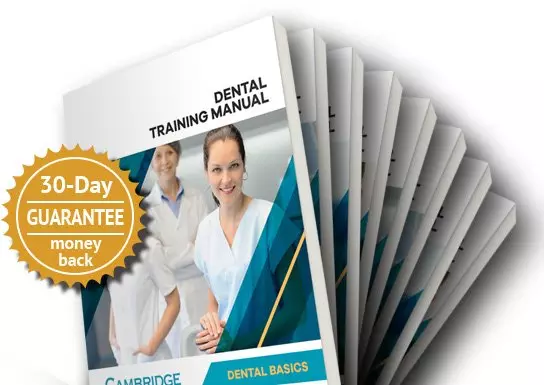Dental Consultant Advice: Running Staff Meeting
AVOIDING INEFFECTIVE MEETINGS
A very poor way to run an office is for you and your staff to have meetings infrequently and only when there has been a problem. Staff meetings should be something that are useful and routine, not something that are called as emergencies because you’re upset or there have been problems or somebody has made a mistake.
You can make the mistake of calling a meeting when only one individual needs to be corrected and that individual is talked about in the meeting as if it’s “everybody.” That will do two things very poorly. First, this is a way of chastising the individual who hasn’t performed their job correctly in front of the whole group. Second, you are letting your disgruntled feelings known toward the entire group rather than the one individual who probably needs to talk with you on an individual basis. So again, the meeting is highly unproductive and not appreciated by anyone at all.
Meetings can also be inappropriately used for gripe sessions. Staff meetings aren’t controlled by the dentist or office manager accordingly and can turn into a horrible experience for everyone if not managed properly. If your entire staff sits there and criticizes everything that is wrong with the office without necessarily talking about any effective way to change it or make it better, you have essentially wasted everyone’s time.
So not knowing how to run an effective staff meeting, many offices don’t have staff meetings at all. And when they do, they are just administrative events that nobody gets anything out of.
Meetings have to be something that your staff finds valuable in the week-to-week or day-to-day activities. Otherwise, it is an administrative exercise that people attend only because the employer has called it and they have to show up or they may lose their job. What type of environment would that be and what type of contribution would you get out of people if this is how meetings went in your office?
CONDUCTING A SUCCESSFUL MEETING
The following paragraphs explain how meetings should be conducted.
The first thing you should have is a logical plan to your meeting and a very good idea of what you’re going to accomplish, and that is called an agenda. Meetings should be held at least one month, many do so every two weeks with larger offices doing so once a week.
Have a standard time when you always meet and make sure everyone knows about them well in advance. The dentist and office manager should always be in attendance, unless schedules do not permit. But this should be the exception and not the rule. These meetings will be approximately one hour long and are necessary to keep employees updated on future plans, policy additions/changes; review production numbers; and conduct group training as needed.
Staff meetings are not a gripe session. A staff member should never be reprimanded for communicating, but do not tolerate the spreading gossip, rumors or causing a disturbance in the work area. Encourage staff to give their ideas for improving the quality or speed of your services. In addition, welcome suggestions to correct situations that may be hindering our efficiency. Dentistry itself is a very positive science. We need to mirror this positive attitude in all our actions, whether it is with patients or fellow staff members.
Any meeting that happens without an agenda is usually unproductive. It doesn’t matter if it takes place at a big corporation, a church, a social gathering or any place else. One needs to cover specific points and then move on, otherwise the meeting drags out and may involve things that aren’t necessarily valuable to the entire group. So, there is no point in letting anybody cover an issue that could be handled otherwise in a private meeting or in writing on the appropriate form.
PROVIDING A MEANINGFUL AGENDA
Efficient practices typically have a general policy manual with the “rules of the game”. For example, if a staff member wants to take a vacation, a good general policy manual should have a specific way to request it in written form. If you don’t have that “rules of the game” manual available or your staff does not know it, you might find someone complaining at a staff meeting that they haven’t been able to find a good time to take a vacation and would like to address that at a meeting. Well, that is not the time or place for it. You could also have a staff member going on and on about not having adequate equipment or supplies at a staff meeting. In other words, a staff meeting is not the place or time to discuss things that should be handled in writing or during one-on-one conversations/meetings.
So, what are the points of a staff meeting? In a staff meeting, you want to cover the actual performance of the group. To use an analogy, halftime at a football game is a time when the spectators go get refreshment and chit chat with friends. BUT, that is not what the team is doing; that is, what the “spectator” is doing. It is a time when the team gathers around the board and the coach goes over what plays are working and what plays aren’t working, how to improve their score and other factors. For example, how many yards were accomplished by running and how many yards were gained passing. These statistics give the coach an idea as to whether or not they can actually win the game with their current plan.
Well, that should also be part of the staff meeting – going over the key statistics of the practice. Are they doing well or lousy or average? No matter which one applies, you should have a plan or, at the very least, an instruction to your staff to continue doing what has been so successful. Why would you stop doing something that patients liked and improved performance and production? Now, if it’s working well but you see room for improvement, then by all means DO IT! Just remember, there is a fine line sometimes between change and improvement.
Someone needs to be assigned the job of secretary; so all of the pertinent notes (minutes of the meeting) are taken and can be referred back to at some point in time. If you changed your script for leaving messages for patient confirmations and all of a sudden are flooded with angry calls, you might want to correct that change. The point is all changes, improvements or “leave it alone” actions are based on what happened - the result, the half-time score. Not opinions or what some other practice did or didn’t do.
Another point to drive home in your staff meeting is that you and the staff are a team, a group that has a very valuable service that is needed and wanted by the community. Staff meetings are a very good time to hone your skills as a team. As the leader, you need to participate and be involved in the meeting and if needed, the training. Part of the staff meeting time should be allocated for training.
Take the time and step back to analyze the practice and find out what area of the practice needs improvement. By “training at the staff meetings” we mean actual role-playing, practicing handling people better, and by doing so, you are actually going to be building a better practice. When appropriate, recording your role-playing, so it can be reviewed, speeds up training greatly. It’s amazing sometimes to see yourself on video or listen to yourself on audio. A lot of improvement can result from getting over any fear of the camera; and, thereby exuding more confidence when face to face with a patient.
Now, you may notice initially that because the staff are not used to this type of training (role playing), they don’t seem to like it. But the real truth of the matter is you’re just looking at people who are not accustomed to a new way of training that is a little tougher than just sitting back and listening to a seminar video or DVD by one of the many dental management gurus. That’s being a spectator - they “spectate” they don’t DO or get things done. If your staff has worked in other dental offices, they have likely never had meetings where they practice much of anything. So, this will be a brand new way of training for them. Don’t confuse the appearance of them not liking it with the reality that they just simply need some time to get used to it. You need to effectively control these meetings. You need to make sure that they actually sit down and, if you give them the script to follow, that they pair off and actually role-play these points back and forth until they accomplish some familiarity with; 1) a degree of proficiency in using it to the point where they are comfortable and 2) they actually do use it in the office. At subsequent staff meetings, you can find out if they actually achieved some results with it.
Another key part of a successful staff meeting is the sharing of success stories. When a patient tells an employee that their visit to your office was something special; a lot more comfortable then they imagined it to be; they felt the service was great; or, they felt your particular staff were more caring then they expected; those comments need to be shared with the group, because patient compliments are one of the highest forms of motivation a group can actually obtain. Great success stories from patients will give them more fuel to do a good job than anything else.
So, what we want to do is make sure your staff is constantly getting feedback from patients about how much they appreciate what you do. The fact that you’re doing a good service and that the training you are doing is showing up with real results as evidenced by the patients response is extremely important. If you follow this agenda, if you work at it diligently, you will find out after a while that it will be productive and actually increase efficiency and morale.
SAMPLE STAFF MEETING AGENDA
Part One
1. Call to order
2. Roll call
3. Minutes from last meeting
4. Open issues:
New policy on vacation days (Owner or OM)
Discussion of whether or not to change labs (Owner or specific employee who will lead discussion)
Part Two
Review production numbers and goals for past week (Owner or OM)
Staff/Patient success stories (Owner or OM)
Part Three
New policy, project or protocol: Internal Marketing (Owner or OM)
Training: Staff training on the new patient referral program (Owner or OM)


